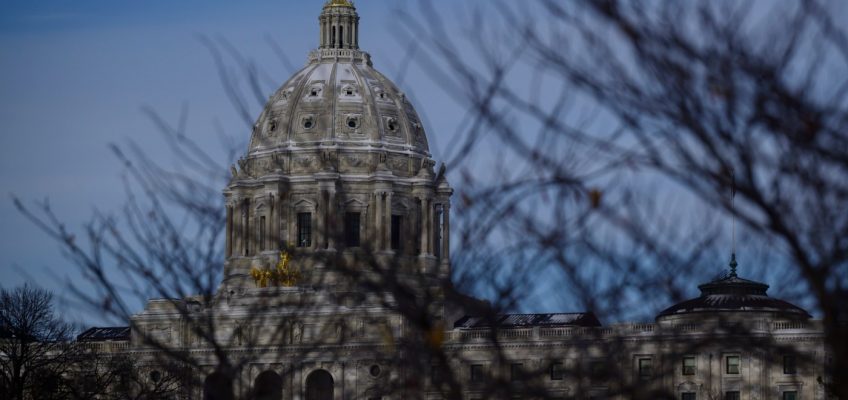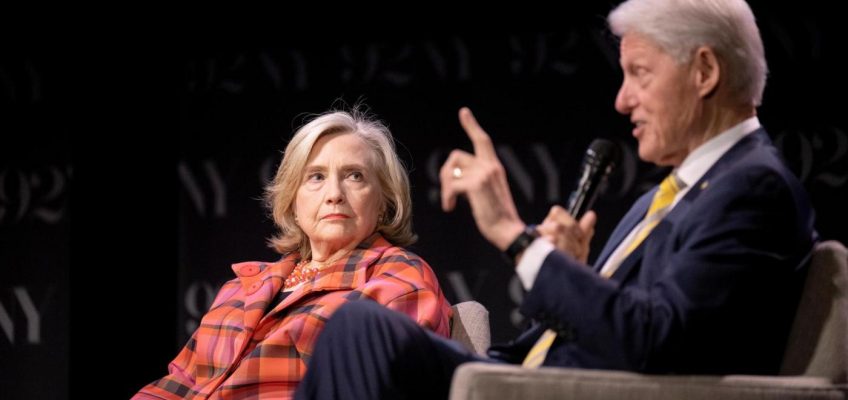By DAVE COLLINS
Newly released police video shows former WWE CEO Vince McMahon’s high-speed car crash in Connecticut last summer and reveals that a state trooper was trying to catch up to him to pull him over at the time.
Related Articles
NASA’s Mike Fincke identifies himself as the ailing astronaut who prompted space station evacuation
Sondra Lee, a veteran Broadway dancer with roles in ‘Peter Pan’ and ‘Hello Dolly!’ dies at 97
Bill Gates ‘spoke candidly’ about Epstein ties at a Gates Foundation meeting, spokesperson says
Harvey Weinstein hires Luigi Mangione and Sean ‘Diddy’ Combs’ lawyers as his 3rd NY trial looms
Judge says he will order Greenpeace to pay an expected $345 million in oil pipeline protest case
McMahon, now 80, was driving his 2024 Bentley Continental GT on the Merritt Parkway in Westport on July 24 — coincidentally, the same day that WWE legend Hulk Hogan died of a heart attack in Florida. State police said the Bentley, which can cost over $300,000, was going 100 mph or more.
“Why were you driving all over 100 mph?” state police Detective Maxwell Robins asks McMahon after the crash, according to police bodycam video. McMahon replies, “I got my granddaughter’s birthday” and explains he was on his way to see her.
Robins’ dashcam video shows McMahon driving northbound in the right lane when he approaches a BMW in the same lane, appears to hit the brakes and swerves into the left lane at the last second. The Bentley clipped the rear of the other car before smashing into the left lane guardrail and careening back onto the highway, creating a cloud of dirt and car parts. McMahon then stops in the right shoulder.
No one was seriously injured in the crash, police said. Besides damage to the rear of the BMW, another vehicle driving on the opposite side of the parkway was struck by flying debris. The driver of that third car happened to be wearing a WWE shirt.
McMahon was cited for reckless driving and following too closely. A state judge in October allowed McMahon to enter a pretrial probation program that will result in the charges being erased from his record next October if he successfully completes the program. He was also ordered to make a $1,000 charitable contribution.
In an image taken from Connecticut State Police police dashcam video, Vince McMahon’s car, center left, collides with another car after on July 24, 2025, in Westport, Conn. (Connecticut State Police via AP)
State police said Robins was trying to catch up to McMahon on the parkway and clock his speed before pulling him over. They said the incident was not a pursuit, which happens when police chase someone trying to flee officers. They said it did not appear McMahon was trying to escape the trooper.
Police video shows Robins telling McMahon about his efforts to catch up to McMahon. “I’m trying to catch up to you and you keep taking off,” Robins says. “No, no no. I’m not trying to outrun you,” McMahon says.
An accident information summary provided to the media shortly after the crash did not mention that a trooper was following McMahon.
The Associated Press obtained the videos Wednesday through a public records request. They were first obtained by The Sun newspaper.
Police body cameras recorded troopers’ interactions with McMahon on the side of the highway.
Robins tells McMahon that he doesn’t understand why McMahon didn’t change lanes sooner to avoid the crash and asks whether he was looking at his phone. McMahon denies looking at his phone and adds that he hadn’t driven his car in a long time.
McMahon later gives Robins his car registration and curses at himself, the video shows. After Robins tells McMahon that his car is fast, McMahon replies, “Yeah, too (expletive) fast.”
In an image taken from Connecticut State Police police dashcam video, Vince McMahon’s car, left, strikes the median after colliding with another car after on July 24, 2025, in Westport, Conn. (Connecticut State Police via AP)
The videos also show McMahon talking to the driver whose car he rear-ended. Barbara Doran, of New York City, told the AP last summer that McMahon expressed his concern for her and was glad she was OK. She said she was heading to a ferry to Martha’s Vineyard at the time of the crash.
After McMahon was given the traffic summons, he shook hands with Robins and another trooper and they wished him well.
McMahon’s lawyer, Mark Sherman, said the crash was just an accident.
“Not every car accident is a crime,” Sherman said. “Vince’s primary concern during this case was for the other drivers and is appreciative that the court saw this more of an accident than a crime that needed to be prosecuted.”
McMahon stepped down as WWE’s CEO in 2022 amid a company investigation into sexual misconduct allegations. He also resigned as executive chairman of the board of directors of TKO Group Holdings, the parent company of WWE, in 2024, a day after a former WWE employee filed a sexual abuse lawsuit against him. McMahon has denied the allegations. The lawsuit remains pending.
McMahon bought what was then the World Wrestling Federation in 1982 and transformed it from a regional wrestling company into a worldwide phenomenon. Besides running the company with his wife, Linda, who is now the U.S. education secretary, he also performed at WWE events as himself.




